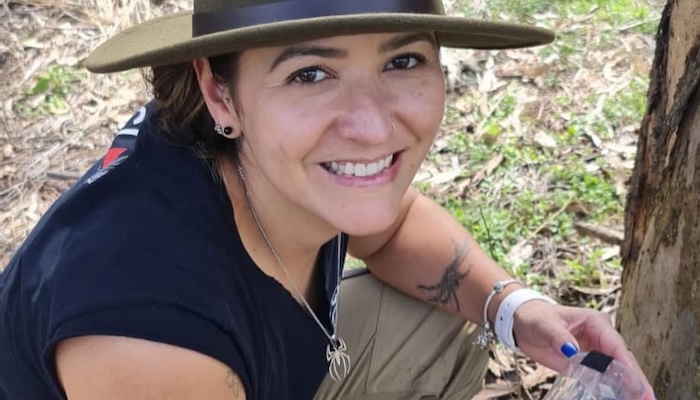David* is worried about his elderly mother, Barbara*, who lives alone and is becoming more confused and forgetful. David wants Barbara to sell up and move into residential aged care; but his sister Michelle* thinks Barbara should move into a granny-flat in Michelle’s backyard.

First of its kind: At the new Capacity and Capability Clinic, doctors and lawyers team up to help support the preferences of people with diminished decision-making ability.
Barbara assigned her two children joint power-of-attorney and enduring guardianship rights when she was diagnosed with early-stage Alzheimer’s disease last year; but now the two siblings are in heated conflict about her future and threatening legal action.
Barbara was an early client at Macquarie Health’s new Capacity and Capability Clinic, an innovative medico-legal practice launched this year to provide supported decision-making for people with cognitive difficulties to help them make sound decisions about their financial and legal affairs.
“The documents Barbara created couldn’t legally be brought into effect because her children were diametrically opposed, so she needed a third party appointed,” says lawyer and clinic co-founder Michael Perkins.
Helping people stay in the driver's seat
Instead of selecting from her children’s ideal options, the clinic focused on what Barbara wanted – which was to be supported to stay in her own home.
“Our consultation was about how to scaffold support around Barbara’s will to stay at home, to make sure she had an effective decision maker to support her preferences moving forward,” explains Perkins. “After that, we can worry about how we put the family support around her.”
Co-founder of the clinic, Dr Jane Lonie, is a clinical neuropsychologist who specialises in assessing cognitive dysfunction in adults – and providing medico-legal opinion on their legal capacity.
Up to 30 per cent of people between the age of 55 and 85 have mild cognitive impairment, she says.
“We want to help people remain the driver of their decisions for as long as possible with the support that will be effective to enable them to do so,” says Dr Lonie.
Finding solutions
Barbara's situation is a common scenario with no easy solution, Perkins says. Establishing whether someone has the mental capacity to manage their own health, financial and legal affairs can be a fraught process involving reports from doctors and lawyers, and can cause stress, frustration and conflict within families.
“We’ve moved away from assessing whether someone is impaired in their decision-making to embracing ability-focused decision-making,” says Perkins.
We need to be able to scaffold people's decisions and keep them at the centre of the discussion about their affairs."
But there are legal requirements around informed consent which complicate the ability for people to manage their financial affairs and to make decisions about their medical preferences.
In the clinic, clients work with both a lawyer and a clinical neuropsychologist, both with expertise in the complexities of reduced cognitive capacity and the legal implications for family, financial and business decisions.
Legal instruments like enduring powers of attorney are all about substitute decision making, rather than consultation, Perkins explains.
“We need to be able to scaffold people's decisions and keep them in the centre of the discussion about their affairs,” he says.
This is at the heart of a societal shift to use supported decision-making methods whenever appropriate, he says.
“When there's a divergence between the wisdom, preference and values of the person and the care and their supporters, this can cause conflict and even elder abuse, expressed in a range of ways,” he says.
Community service
The clinic accepts referrals directly from GP’s, patients, their family and supporters as well as community and home care services.
The most common requests are for assessment of a person’s capacity to manage their financial affairs, to consent to medical treatment or procedures, and to appoint or activate a power of enduring guardianship or enduring power of attorney.

Resolving conflict: doctors and lawyers are working together at the new clinic to help resolve family disputes when a older person's independent ability to make decisions is affected by a health condition.
Clinic consultations can be face to face or through tele-health sessions.
Family disputes are unfortunately common, says Dr Lonie.
“Where someone’s decision-making capacity is diminished for whatever reason, people can also be concerned that the legal decision or a financial decision that’s made will later be challenged and will lead to further conflict,” Lonie says.
The focus of the clinic is to get the client, their family and other key people on the same page, she adds.
That can also involve helping everyone understand some of the barriers, like reduced executive brain function, that can prevent a person from making decisions that they used to make independently.
- Put down your phone: why daydreaming on the commute is crucial
- Big brands take a stand and support #BLM
“We don't want awkward and complex situations where questions around decision-making capacity can divide family members and shut off the support that’s available to the client,” she adds.
“We take a person-centred approach; we want to help the client to keep their will and preference as the focus of the concern.”
* Names and identifying details have been changed.
Dr Jane Lonie is a consultant clinical neuropsychologist at Macquarie Hospital and Michael Perkins is at lawyer at Autonomy First.
The Capacity and Capability Clinic is operated by Autonomy First Lawyers in collaboration with MQ Health. The clinic is at Suite 401, Level 4, 2 Technology Place, Macquarie University and telephone and videoconferencing options are available.



